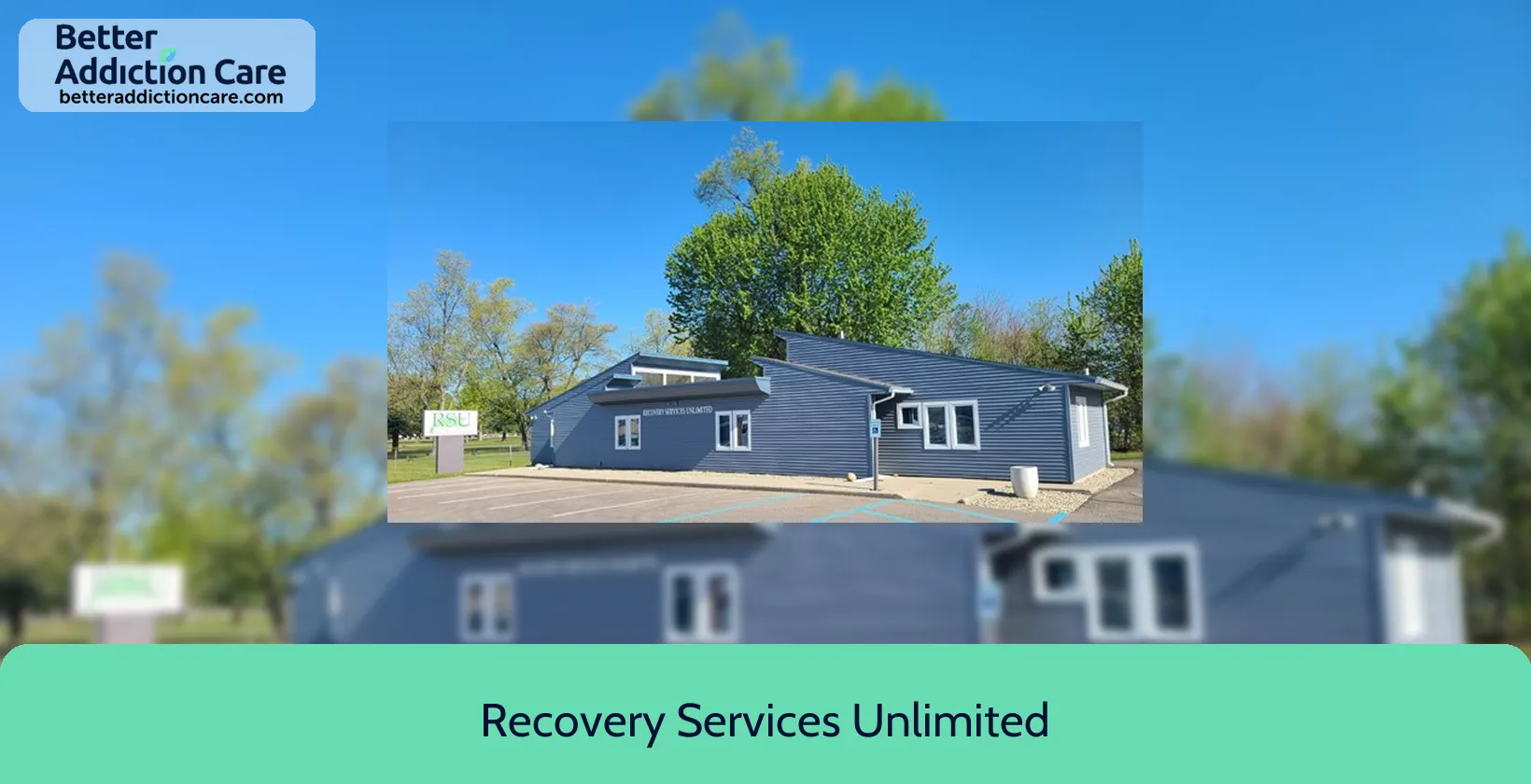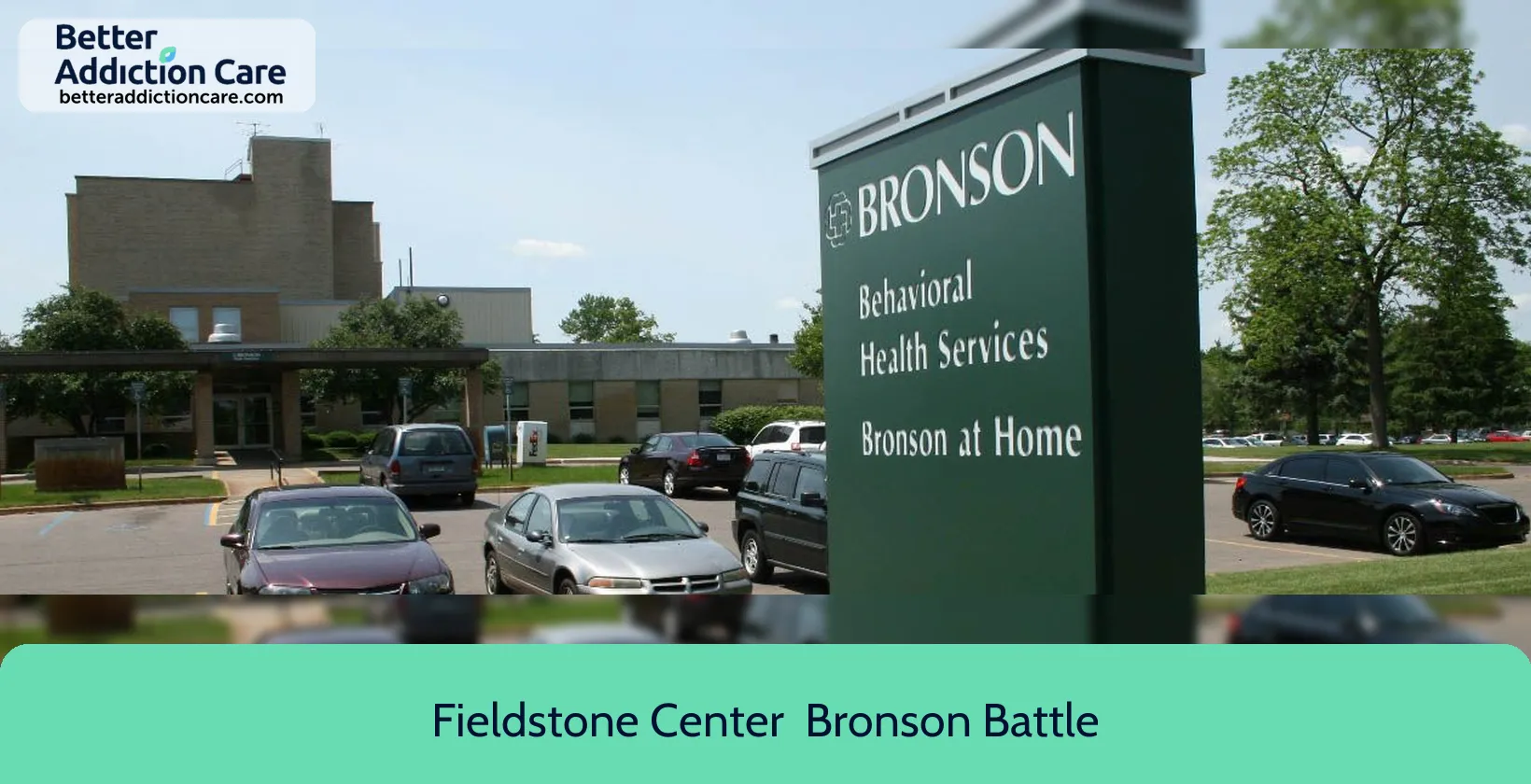Fieldstone Center - Bronson Battle Creek Behavioral Health
Overview
Fieldstone Center - Bronson Battle Creek Behavioral Health is a mental health treatment center for people seeking treatment near Calhoun County. As part of their treatment modalities for recovery, Fieldstone Center - Bronson Battle Creek Behavioral Health provides group counseling, cognitive behavioral therapy, and dialectical behavior therapy during treatment. Fieldstone Center - Bronson Battle Creek Behavioral Health is located in Battle Creek, Michigan, accepting cash or self-payment for treatment.
Fieldstone Center - Bronson Battle Creek Behavioral Health at a Glance
Payment Options
- Cash or self-payment
- Medicaid
- Medicare
- State-financed health insurance plan other than Medicaid
- Private health insurance
Assessments
- Screening for tobacco use
- Comprehensive mental health assessment
- Comprehensive substance use assessment
Age Groups
- Young adults
- Adults
- Seniors
Ancillary Services
- Case management service
- Court-ordered outpatient treatment
- Diet and exercise counseling
- Integrated primary care services
- Suicide prevention services
Highlights About Fieldstone Center - Bronson Battle Creek Behavioral Health
6.68/10
With an overall rating of 6.68/10, this facility has following balanced range of services. Alcohol Rehabilitation: 8.00/10, Drug Rehab and Detox: 6.00/10, Insurance and Payments: 6.00/10, Treatment Options: 6.73/10.-
Alcohol Rehabilitation 8.00
-
Treatment Options 6.73
-
Drug Rehab and Detox 6.00
-
Insurance and Payments 6.00
Treatment At Fieldstone Center - Bronson Battle Creek Behavioral Health
Treatment Conditions
- Mental health treatment
- Substance use treatment
- Co-occurring Disorders
Care Levels
- Hospital inpatient/24-hour hospital inpatient
Treatment Modalities
- Group counseling
- Cognitive behavioral therapy
- Dialectical behavior therapy
- Integrated Mental and Substance Use Disorder treatment
- Activity therapy
Ancillary Services
Languages
- Sign language services for the deaf and hard of hearing
Additional Services
- Pharmacotherapies administered during treatment
- HIV testing
Special Programs
- Persons 18 and older with serious mental illness (SMI)
Get Help Now
Common Questions About Fieldstone Center - Bronson Battle Creek Behavioral Health
Contact Information
Other Facilities in Battle Creek

7.53

6.62

6.83

6.80

7.60

6.86
DISCLAIMER: The facility name, logo and brand are the property and registered trademarks of Recovery Services Unlimited, and are being used for identification and informational purposes only. Use of these names, logos and brands shall not imply endorsement. BetterAddictionCare.com is not affiliated with or sponsored by Recovery Services Unlimited.

